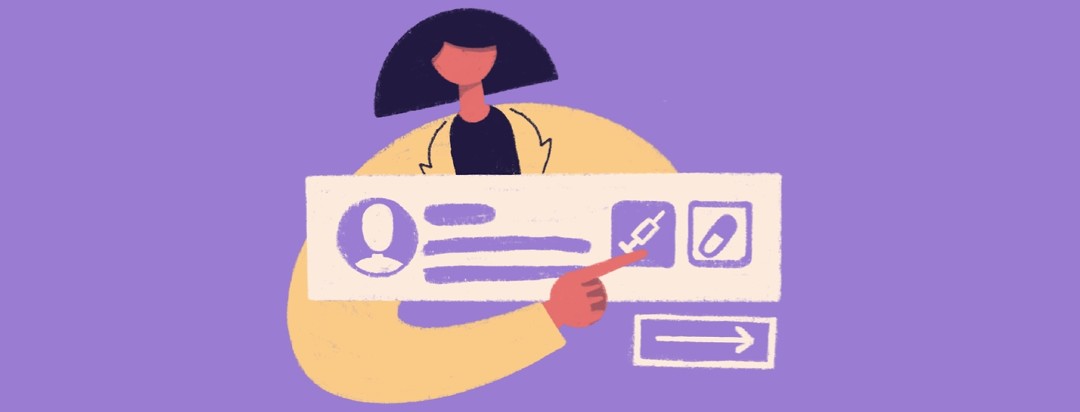Cluster Headache Treatments
Cluster headache is characterized by the location and severity of the headaches.1 They develop suddenly and can last for 15 minutes or up to a few hours. This can make them difficult to diagnose and treat. They are not life-threatening, nor do they cause brain damage.2Cluster headache can be episodic or chronic (recurring), and can be disruptive to lifestyle and work, and are extraordinarily painful.3
Cluster headache vs. migraine disease
Cluster headache is different from migraine disease that are underdiagnosed, and often mistreated.2 They tend to occur more often in men than in women, who more traditionally suffer from migraine.4 Onset generally develops between ages 20 and 40.2 A neurological exam will confirm a diagnosis of cluster headache.1
Cluster headache treatment options
While there is no cure for cluster headache, the approach to treatment requires immediate pain relief, and prevention of future cluster headache attacks.1,3 Cluster headache pain is acute which requires fast-acting treatments because of the suddenness with which they develop. Because they often begin in the middle of night people who experience cluster headache are likely to have access to preferred treatments.1,2,3
Treatment selection by physicians should be individualized based upon pain relief and prevention.2
Oxygen
High-dose oxygen therapy inhaled through a face mask for about 15 minutes can provide safe, inexpensive relief.1,3 This approach is easiest when you are at home. When you are out, oxygen therapy is more impractical because portable oxygen is often considered inconvenient.
Triptans
Triptans are common for migraine treatment and sumatriptan is is a form that can come as a nasal spray used to relieve the severe pain from cluster headache.3 Sumatriptan is a selective serotonin receptor agonist.1 This medicine causes blood vessels in the brain to constrict, thereby relieving pain.3 There are contraindications for sumatriptan for people with uncontrolled high blood pressure.1 A nasal spray triptan, zolmitriptan, can be used to treat cluster headache if other fast-acting treatments are not well tolerated.1 Neither of these medications prevents future headache attacks or migraine attacks. They relieve pain.
Octreotide
An injectable synthetic of the brain hormone somatostatin can be effective but acts more slowly than injectable triptans.
Local anesthetics
Numbing medications like lidocaine may be effective when administered through the nose.
Dihydroergotamine
An injectable form of dihydroergotamine (D.H.E. 45) may provide effective pain relief. It is an ergot medicine which works by narrowing blood vessels around the brain. It does not prevent headaches or reduce the number of attacks.
Preventive treatments
There are daily medicines that can be taken on a prophylactic basis with the aim to provide relief or delay onset. Each may have side effects that should be discussed with your physician when considering treatment selection.1
- Emgality: This was the first FDA approved drug to treat cluster headache. In clinical trials, Emgality reduced the number of headache episodes during a particular cluster. It is a CGRP inhibitor that also prevents or reduces the frequency of migraines4
- Calcium channel blockers:Verapamil is a first line drug for preventing cluster headache.
- Corticosteroids:Prednisone is a fast acting steroid that reduces inflammation and swelling. They are not a good choice for long term use because of known side effects which include the development of diabetes and hypertension.
- Lithium carbonate: Restores the balance of certain brain chemicals often prescribed to treat bipolar disorder. Because of the potential of serious side effects, blood tests will be evaluated periodically.1,3
- Nerve Block: An occipital nerve block may provide temporary relief until long term medications take effect.
- Anti-seizure medicationsTopiramate and other preventive medications can provide relief for some people with cluster headache.
Surgery
Surgery is not a first-line treatment for people who have cluster headache. It is generally recommended in cases where medications and other treatments cannot be tolerated or are not effective.1 Some surgical approaches are destructive, designed to damage the nerve. Long term benefits of this approach have not been demonstrated.1
- Sphenopalatine ganglion stimulation surgical implantation of a neurostimulator operated by a hand-held remote control.
- Noninvasive vagus nerve stimulation (VNS) a hand-held controller to deliver electrical stimulation to the vagus nerve through the skin.
- Occipital nerve stimulation surgical implantation of an electrode next to one or both occipital nerves.
Treatments being studied
Additional potential treatments for cluster headache are under investigation. There is a need for additional research and more overall accurate diagnoses to continue to develop treatments for this painful condition.
What can you do to help yourself?
If you can identify what triggers your cluster headache you can try to minimize exposure to those triggers. A routine sleep schedule, going to bed and waking up at the same time each day can help diminish the likelihood of developing a cluster headache. Avoid smoking and drinking alcohol, especially during the cluster period.1,2,3 Consider complementary therapies such as taking melatonin.1
Community Poll
Do you feel comfortable advocating for yourself to your healthcare provider?

Join the conversation